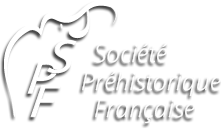Menu
- La SPF
- Réunions
- Le Bulletin de la SPF
- Accès libre Jstor (1978-2023)
- Accès libre Persée (1904-2021)
- Bulletin de la SPF 2025, tome 122
- Bulletin de la SPF 2024, tome 121
- Bulletin de la SPF 2023, tome 120
- Bulletin de la SPF 2022, tome 119
- Séances de la SPF (suppléments)
- Organisation et comité de rédaction
- Comité de lecture (2020-2025)
- Ligne éditoriale et consignes BSPF
- Données supplémentaires
- Annoncer
- Publications
- Vidéo
- Newsletter
- Boutique
Coordonnées
Pôle éditorial de la MSH Mondes
(Maison de l'archéologie et de l'éthnologie)
Boite 41
21 allée de l'Université
F-92023 Nanterre cedex - FRANCE
Société préhistorique française
- La SPF
- Réunions
- Le Bulletin de la SPF
- Accès libre Jstor (1978-2023)
- Accès libre Persée (1904-2021)
- Bulletin de la SPF 2025, tome 122
- Bulletin de la SPF 2024, tome 121
- Bulletin de la SPF 2023, tome 120
- Bulletin de la SPF 2022, tome 119
- Séances de la SPF (suppléments)
- Organisation et comité de rédaction
- Comité de lecture (2020-2025)
- Ligne éditoriale et consignes BSPF
- Données supplémentaires
- Annoncer
- Publications
- Vidéo
- Newsletter
- Boutique
Powered by aiw-pro | all-in-web © 2026 | Simplifiez-vous la vie!
Chargement de la page : 2256 ms




